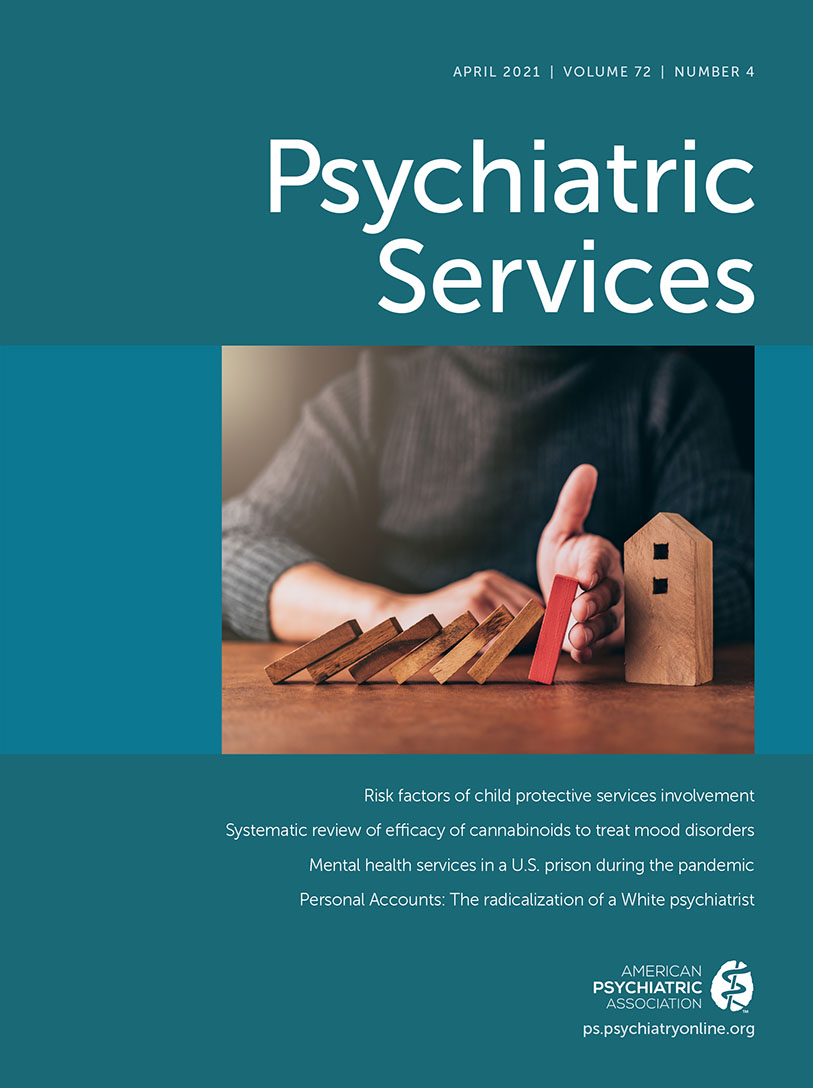Risk Factors Associated With Child Protective Services Involvement Among Parents With a Serious Mental Illness
Abstract
Objective:
People with serious mental illnesses are as likely to be parents as people in the general population but are much more likely to have contact with child protective services (CPS) and experience an out-of-home placement of their children. This study sought to identify risk factors for CPS involvement among parents with serious mental illnesses.
Methods:
Parents with a serious mental illness were identified through a national, representative survey. Data from a follow-up interview were used to compare characteristics of parents who had a CPS contact (N=36) with those who did not (N=38). The interview assessed demographic and health characteristics, social support, traumatic life events, and other general risk factors for CPS involvement.
Results:
Compared with parents without CPS contact, parents with a CPS contact were more likely to be nonwhite and to be less educated. They were also more likely to have less attachment-related social support, more parenting-related needs in numerous areas, and more substance use–related issues and to have experienced adverse childhood and traumatic events. One-quarter of the parents with CPS contact reported not having a mental disorder diagnosis at the time of the first contact, and those in the CPS group were less likely to have taken medications at the time of the first contact than were parents who did not have a CPS contact.
Conclusions:
Results suggest a need for policies, programs, and practices that attend to common risk factors associated with CPS involvement that are present in the general population rather than concentrating efforts on addressing behavioral health factors specific to parents with serious mental illness.



